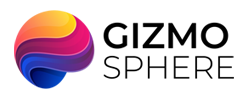The pandemic has amplified technology’s influence by making more people work remotely and carry out activities online. It’s difficult to predict how technology will evolve beyond this point. However, what’s almost certain is that it will find even more ways to entwine itself in our lives.
Most people can probably think of arguments in favor of, or against, the increased use of devices and AI. But no one can deny the significance of its impact. When smart home professionals like Legacy Solutions, LLC, implore that “technology should serve you,” we need to take heed. It’s time to manage our relationship with technology, even as we depend on it to work from home.
Indispensable, but with issues
To the average user, it’s hard to escape the benefits of technology. We obviously need the internet, devices, video conferencing platforms, collaboration tools, and other apps to work remotely. But in the age of the pandemic, we also turn to digital solutions for an increasing number of needs.
Online shopping isn’t just a safe and convenient way to procure most goods these days. It’s also a lifeline for businesses that can’t offer their usual services. Devices help us to stay in touch while offering various forms of leisure and access to information.
You’ve probably heard about the downsides, too. Excessive screen time means exposure to blue light, which is detrimental to your quality of sleep. The use of social media is associated with generally negative effects on mental health. And what remote worker hasn’t been warned against the distractions posed by their devices and unwanted notifications?
Clearly, technology is an indispensable solution to the needs of modern living. Collectively, we’re no more likely to abandon our phones and the internet than to ditch cars and start traveling on foot or horseback for the rest of our days. But technology is a solution with issues of its own.
Detox has its limitations

In light of this problem, many people turn to the method known as ‘digital detox.’ On a basic level, this entails creating some separation between your life and your devices. Whether that means disconnecting for an hour at the end of each day or going off-grid the entire weekend is up to you.
Some companies have also begun to offer detox-based services. They include tech-free retreats, holiday packages, and similar experiences where digital devices aren’t allowed. Not surprisingly, people have also shown renewed interest in traditional forms of leisure such as art and hiking, and practices like yoga or meditation.
However, a detox can only be a temporary solution. It provides relief from some of the adverse effects of a tech-dependent lifestyle. But the need for technology doesn’t go away. We need to manage our relationship with our devices during the many hours we’ll inevitably still spend using them.
Curate and create
Many people wind up using more technology than strictly necessary in ways that aren’t always healthy. Playing video games is an example of this. They are just one of many leisure activities available to us and by no means the healthiest. Yet, they have the potential to become so addictive that we spend a disproportionate amount of time playing them.
In this example, cutting down on time spent playing games would help you regain a measure of control. But it doesn’t address the root cause, which is necessary for a balanced relationship with technology moving forward.
Everyone has their own unique concerns with the usage of devices. Your root cause, and the steps you take to address it, would be different from others.
Maybe you’re experiencing negativity after using social media because the people you follow seem to be living much better lives, fostering status anxiety and fear of missing out. But another person might be having trouble with social media because they are using it to procrastinate instead of facing tasks that intimidate them.
If you’re going to use social media, be sure to curate who you follow and what shows up on your feed. Even better, try to use it intentionally to create content that can prove uplifting to others. It’s easy to post status updates or feelings at the moment. Creation takes effort and is an inherently positive act.
Working from home, you have to be aware of these potential issues. Evaluate all the tools you’re using, both virtual and physical products. Are they necessary? Do you need yet another app to accomplish something? Does this tool need to send you push notifications when you could be trying to focus?
If there are alternative, non-tech solutions to underlying problems, explore them. Whatever technology remains, you’ll be the master of it.





